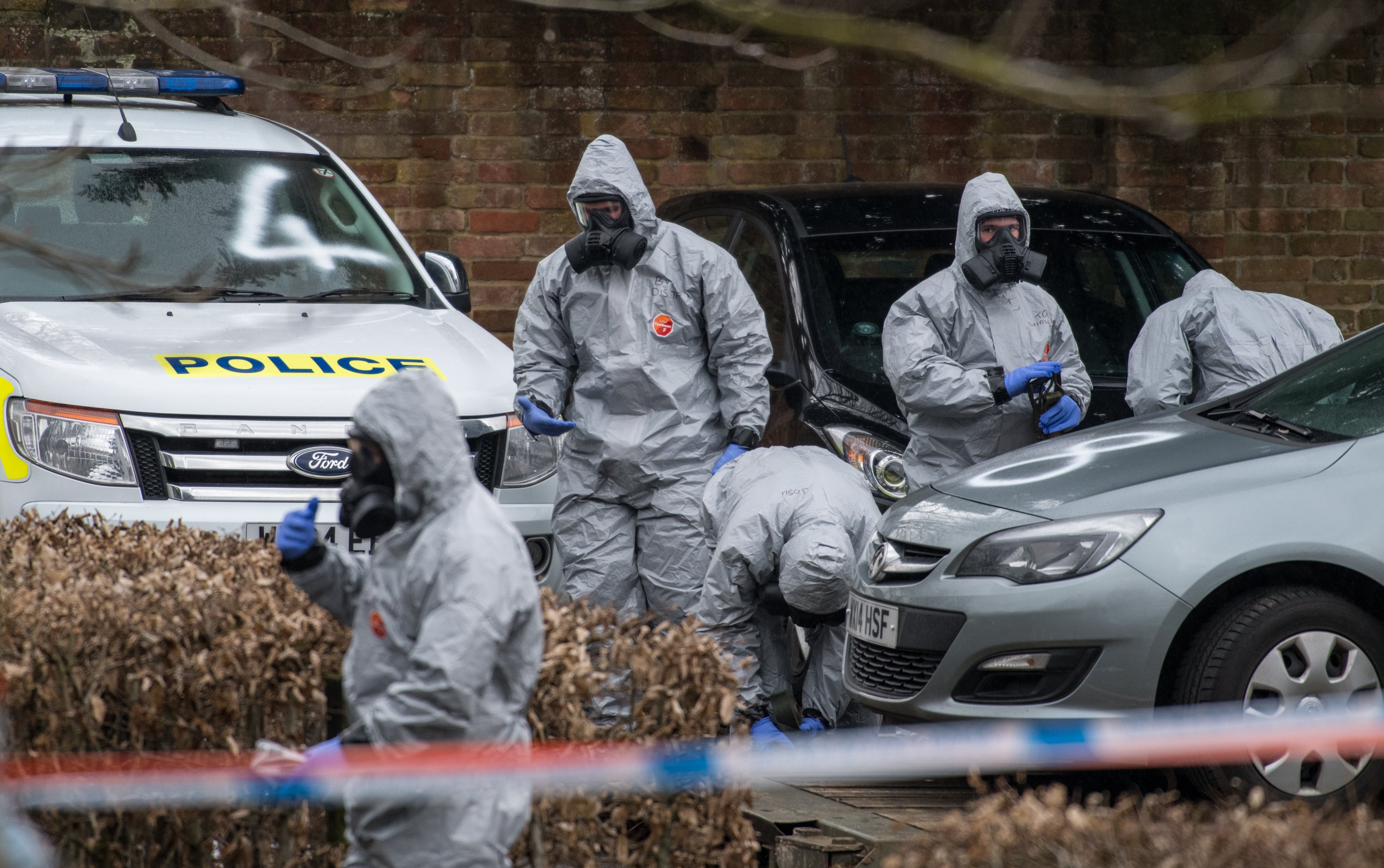Putin has got the west wrapped around his paranoid little finger
If Russian lawlessness had been tackled back in 2006 when Alexander Litvinenko’s widow beseeched world leaders to do something about it, perhaps Ukraine wouldn’t be suffering now


Estonia warned us. So did Latvia and Lithuania. The Baltic states have a long experience of Vladimir Putin’s aggression. They told Europe, the UK and the US, but no one paid much attention. Well, as the cruise missiles, bombs and rockets rain down on Ukraine, everyone’s paying attention now.
The Russia/Ukraine debacle has been likened to the Cuban missile crisis or even the build-up to the Second World War. But as the west scrambles to sanction Russia and defend Ukraine, those who predicted this disaster are saying: “I told you so.”
In fact, we didn’t need to be told by the Baltic states, who spoke from bitter personal experience. Evidence of Russian malignity was there in front of our noses. It was there in 2006 when Alexander Litvinenko had a sushi lunch on Piccadilly, was taken ill and – his face ghastly yellow against the hospital pillows – gradually deteriorated, dying three weeks later from polonium poisoning. His widow said “nothing was done” after a public inquiry into Litvinenko’s death.
A full 12 years then passed before a nerve agent attack on the streets of Salisbury. You’d have thought lessons would have been learnt, but the immediate response was confused, and the EU was divided.
It was a similar picture in 2020 when parliament’s intelligence and security committee accused the British government of failing to carry out an adequate assessment of Kremlin attempts to interfere with the 2016 Brexit referendum.
Why has the UK missed so many opportunities to take action? As Lithuania’s prime minister Ingrida Simonyte told The Guardian earlier this month, we have allowed Putin’s cronies to become embedded in British society. “We have overlooked how these people are using our way of living. They like our universities, our hospitals, banks, because they know rules exist in this part of the world and no one will come and strip them of your possessions. You can go to court to protect yourself, yet at the same time they are trying to undermine our way of living in any way they can,” she said. No wonder they call our capital city “Londongrad”.
Opposition MPs scoffed on Wednesday when Boris Johnson told them: “We do not raise money from Russian oligarchs.” And while it’s true the law dictates that foreign nationals can’t donate to a UK political party, many extremely wealthy people with dual UK-Russian nationality, or with significant business links with Russia, have bankrolled the Conservatives to the tune of nearly £2m since Johnson became prime minister, according to figures compiled by the Labour Party.
There is, as Simonyte eloquently explained, a “dangerous schism”: we rail against Moscow and its contempt of our laws, yet still the streets of our capital city are paved with Russian roubles.
Britain told the United Nations Security Council in 2018 that the Salisbury poisoning “was an unlawful use of force – a violation of article two of the United Nations charter, the basis of the international legal order”. Sanctions followed, but Putin remained entirely unscathed.
To keep up to speed with all the latest opinions and comment, sign up to our free weekly Voices Dispatches newsletter by clicking here
The same approach is being taken now. Even as Putin prepared to send his fighter jets over the border to Ukraine, Johnson spoke loudly but carried a relatively small stick – to turn President Roosevelt’s famous dictum about foreign policy on its head.
So as the west returns Putin’s artillery fire with an opening salvo of sanctions, the man in charge of the second most powerful military power in the world doesn’t seem to care. If Russian lawlessness had been tackled back in 2006 when Litvinenko’s widow beseeched world leaders to do something about it, perhaps Ukraine wouldn’t be suffering now. But the west’s apparent inability to think beyond political short-term expediency has now created a crisis that will be with us for years to come.
And if our leaders appear incapable of thinking sufficiently far ahead to outwit a master tactician, Putin’s obsession with history also exposes our embarrassing ignorance of the lessons of the past.
No wonder Commonwealth soldiers laughed nervously yesterday when the defence secretary, Ben Wallace namechecked the Crimean War as evidence that the UK had “kicked the backside” of Russia before and “can always do it again”. Had he forgotten the Charge of the Light Brigade, when hundreds of British cavalry were accidentally ordered to ride to their deaths at the hands of Russia’s artillery?
We have short memories. Putin, on the other hand, forgets nothing, and rewrites history accordingly. Back in 2016, the Lithuanian foreign minister, Linas Linkevicius, summed up the situation: “Russia is not a superpower, it’s a super problem.” If only we’d listened – and acted – then.
Cathy Newman presents Channel 4 News, weekdays at 7pm

Join our commenting forum
Join thought-provoking conversations, follow other Independent readers and see their replies